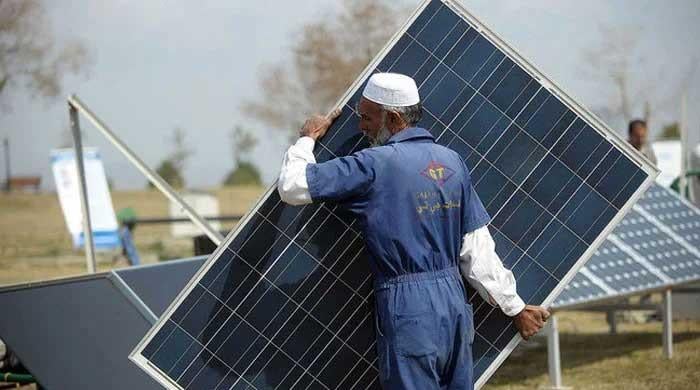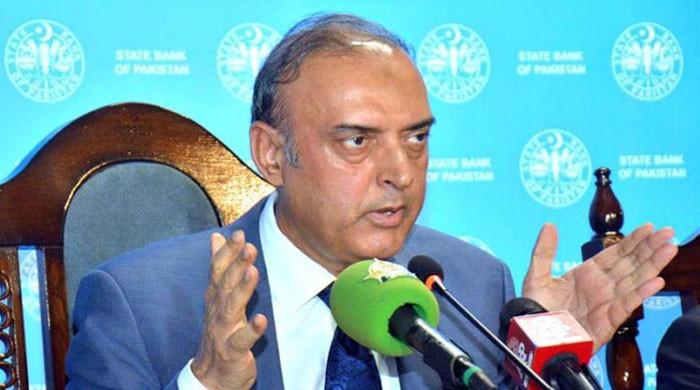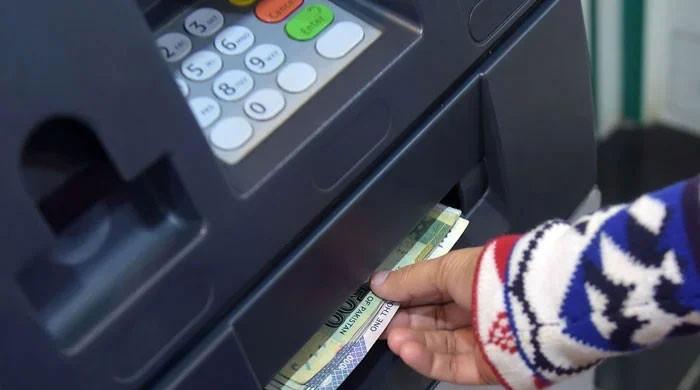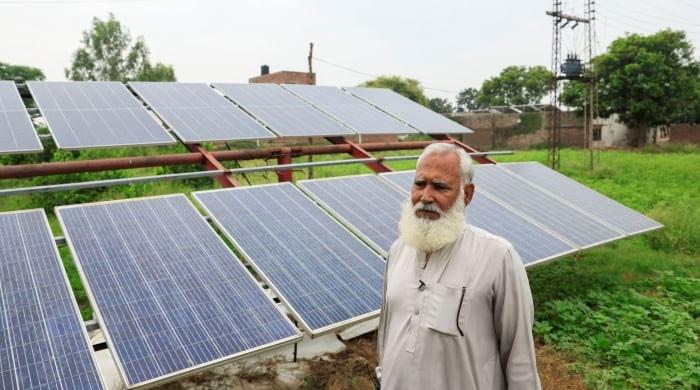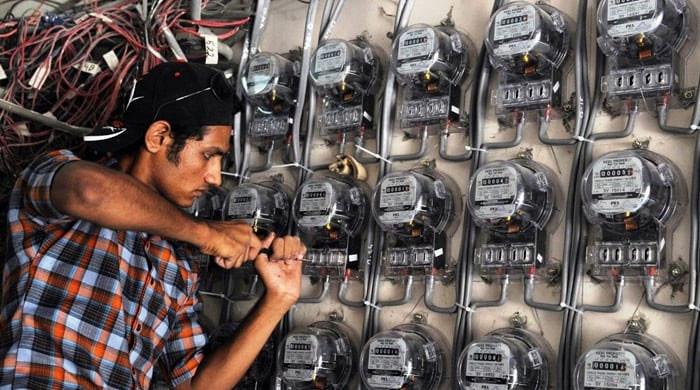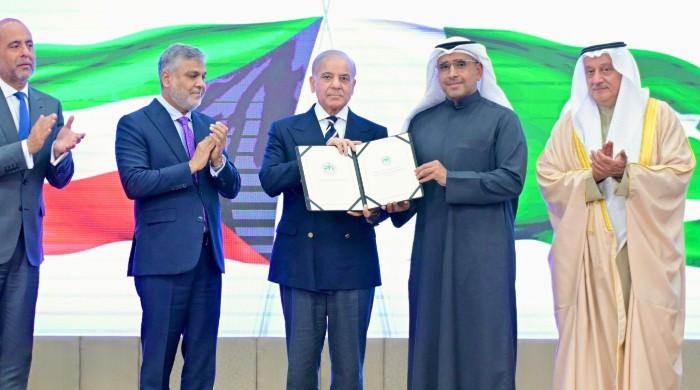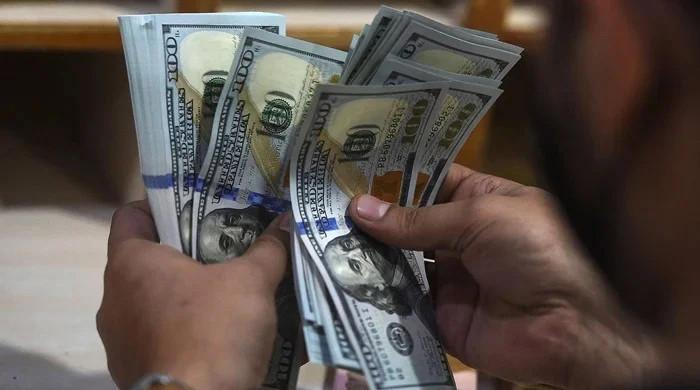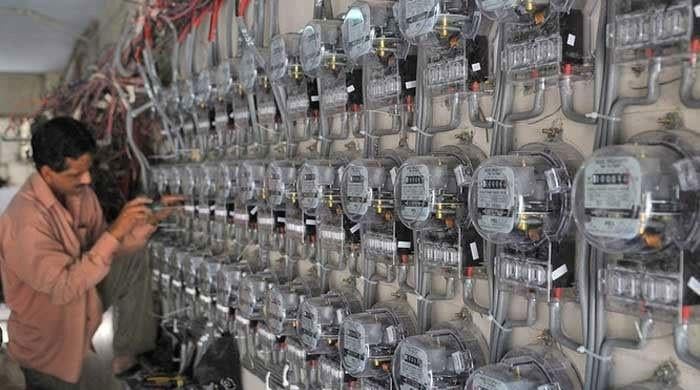IMF diktat: Petrol price raised to historic high of Rs272 per litre
Price of high-speed diesel has been increased to Rs280 per litre after a hike of Rs17.20
February 15, 2023
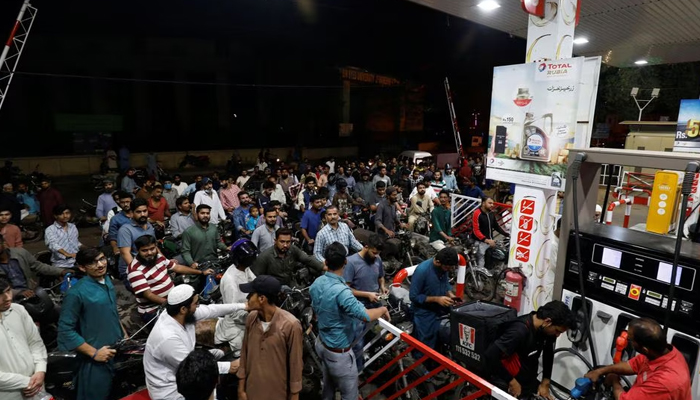
- Rupee devaluation leads to surge in rate of petroleum products.
- Rates of diesel, petrol reach historic highs of Rs272, Rs280 per litre.
- Inflation to go up in Pakistan after petrol hike, 'mini-budget'.
The federal government has increased the price of petrol to a historic high in a bid to appease the International Monetary Fund (IMF) for unlocking the critical loan tranche, hours after unveiling a tax-loaded 'mini-budget'.
The price of petrol has been moved up to Rs272 per litre after an increase of Rs22.20, a press release from the Finance Division read Wednesday night, noting that the surge has taken place due to the rupee's devaluation against the dollar.
The Pakistani rupee has fallen sharply against the dollar since an artificial cap on the local currency was removed last month to allow its value to be decided by a market-based exchange rate.
The price of high-speed diesel has been increased to Rs280 per litre after a hike of Rs17.20. Kerosene oil will now be available at Rs202.73 per litre following a Rs12.90 hike. Meanwhile, light diesel oil will be available at Rs196.68 per litre after an increase of Rs9.68.
The new prices will come into effect from 12am tonight.
| Product | Existing prices w.e.f 29/1/2023 | New prices w.e.f 16/2/2023 | Increase |
| Petrol | 249.80 | 272 | 22.20 |
| High speel diesel | 262.80 | 280 | 17.20 |
| Kerosene | 189.83 | 202.73 | 12.90 |
| Light diesel oil | 187 | 196.86 | 9.68 |
The increase in the price of petroleum products was one of the preconditions of the Washington-based lender, which will lead to a hike in the already record-high inflation, coupled with the new fiscal measures undertaken through the 'mini-budget'.
Senior economist Katrina Ell, associated with Moody's Analytics, had predicted that inflation in Pakistan could average 33% in the first half of 2023 before trending lower, and a bailout from the IMF alone is unlikely to put the economy back on track.
Through the "mini-budget", the Pakistan Democratic Movement (PDM)-led federal government aims to reduce the budget deficit and broaden its tax collection net.
The Federal Board of Revenue (FBR) has issued an SRO, increasing the standard 17% general sales tax (GST) to 18%, for collecting taxes worth Rs115 billion, while the remaining Rs55 billion will be generated through other measures in connection with the Finance (Supplementary) Bill 2023 — or the 'mini-budget'.





